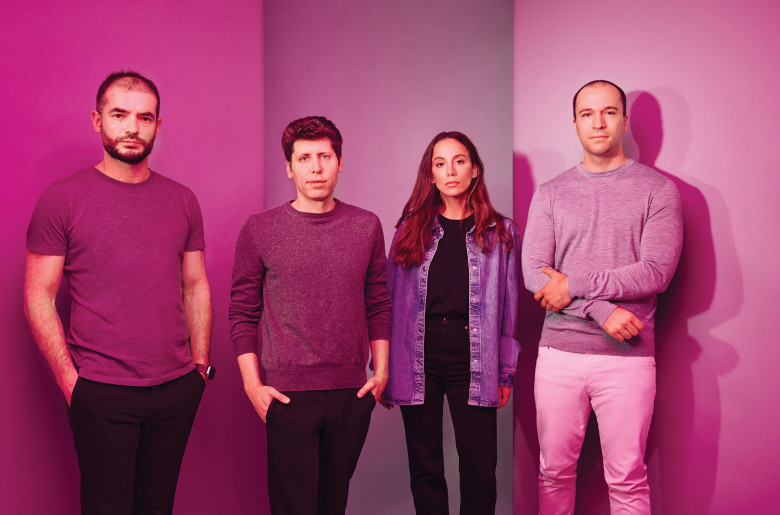What OpenAI Really Wants

The air crackles with an almost Beatlemaniac energy as the star and his entourage tumble into a waiting Mercedes van. They’ve just ducked out of one event and are headed to another, then another, where a frenzied mob awaits. As they careen through the streets of London—the short hop from Holborn to Bloomsbury—it’s as if they’re surfing one of civilization’s before-and-after moments. The history-making force personified inside this car has captured the attention of the world. Everyone wants a piece of it, from the students who’ve waited in line to the prime minister.
Inside the luxury van, wolfing down a salad, is the neatly coiffed 38-year-old entrepreneur Sam Altman, cofounder of OpenAI; a PR person; a security specialist; and me. Altman is unhappily sporting a blue suit with a tieless pink dress shirt as he whirlwinds through London as part of a monthlong global jaunt through 25 cities on six continents. As he gobbles his greens—no time for a sit-down lunch today—he reflects on his meeting the previous night with French president Emmanuel Macron. Pretty good guy! And very interested in artificial intelligence.
As was the prime minister of Poland. And the prime minister of Spain. Riding with Altman, I can almost hear the ringing, ambiguous chord that opens “A Hard Day’s Night”—introducing the future. Last November, when OpenAI let loose its monster hit, ChatGPT, it triggered a tech explosion not seen since the internet burst into our lives. Suddenly the Turing test was history, search engines were endangered species, and no college essay could ever be trusted. No job was safe. No scientific problem was immutable.









































































